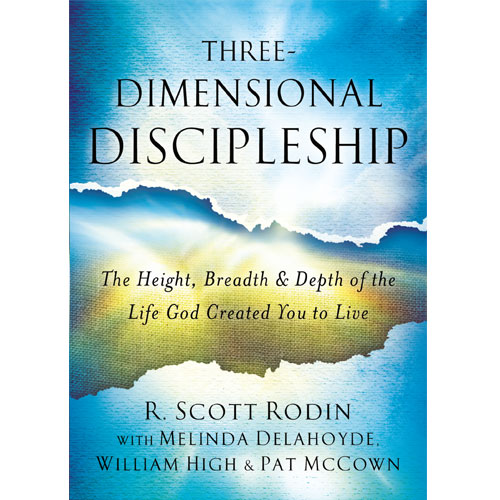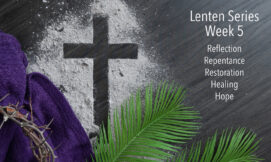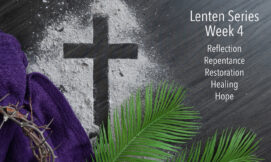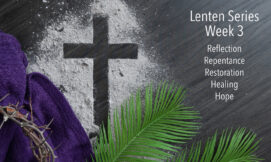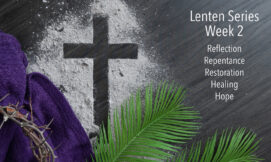Back at the Tree — You Will Not Certainly Die.
Week #2

Lent is a time of repentance. Repentance requires us to name and confess our sin. Naming sin is the first and perhaps most transformational step in our Lenten journey.
We are in a day where the very concept of sin is anathema. In response, we as followers of the Jesus of the cross, must not be conformed to the standards of this world. The church of Jesus Christ must continue to be a confessional church, or it is not worthy of the name it bears.
To help us on this journey of confession and repentance, we are using the four remaining weeks in Lent to go back to the scene of the original sin and consider where and how we might be reenacting that sin in our own lives. Here is our text for these lessons.
Now the serpent was more crafty than any of the wild animals the Lord God had made. He said to the woman, “Did God really say, ‘You must not eat from any tree in the garden’?” The woman said to the serpent, “We may eat fruit from the trees in the garden, but God did say, ‘You must not eat fruit from the tree that is in the middle of the garden, and you must not touch it, or you will die.’” “You will not certainly die,” the serpent said to the woman. “For God knows that when you eat from it your eyes will be opened, and you will be like God, knowing good and evil.” When the woman saw that the fruit of the tree was good for food and pleasing to the eye, and also desirable for gaining wisdom, she took some and ate it. She also gave some to her husband, who was with her, and he ate it. (Genesis 3:1-6)
We are focusing on four statements the enemy made that led to this catastrophic failure on behalf of the first couple:
• “Did God really say?”
• “You will not certainly die.”
• “Your eyes will be opened.”
• “You will be like God.”
Week Two – “You will not certainly die.”
How audacious of the enemy to directly contradict a word from God! This is not a subtle sleight of hand, but a frontal defiance of God’s quite clear warning. Compare the two:
God: And the Lord God commanded the man, “You are free to eat from any tree in the garden; but you must not eat from the tree of the knowledge of good and evil, for when you eat from it you will certainly die.” (Genesis 2:16-17)
The enemy: “You will not certainly die” (Genesis 3:1)
This had to be a high-risk strategy as it required the first couple to consider that God’s unequivocal statement of consequence was, in fact, wrong. Somehow God was either mistaken in his reasoning or misleading in his intent. Could the enemy really assume that Adam and Eve, after knowing only the truth, goodness, and beauty of their creator, would so easily be moved to accept either his egregious error or his malice toward them?
Apparently so. What is at stake here is the relationship between obedience and consequence. The enemy was suggesting that this first couple could directly disobey God without experiencing the repercussions.
Perhaps here is the origin of our tendency to downplay the results of our own sin. When we dismiss the magnitude of the effect of sin in our spirit, or when we make excuses for the wrong attitudes we allow to live comfortably in our character, we reenact the sin of acquiescing to this second temptation.
Isaiah warned of this, “But your iniquities have separated you from your God;
And your sins have hidden His face from you, so that He will not hear.” (Isaiah 59:1-2)
So did Paul, “Do not be deceived: God is not mocked, for whatever one sows, that will he also reap. For the one who sows to his own flesh will from the flesh reap corruption, but the one who sows to the Spirit will from the Spirit reap eternal life.”(Galatians 6:7-8)
And the Psalmist, “If I had cherished sin in my heart, the Lord would not have listened.” (Psalm 66:18)
And Moses, “But if you will not do so, behold, you have sinned against the Lord, and be sure your sin will find you out.”(Numbers 32:23)
And John, “If we say we have no sin, we deceive ourselves, and the truth is not in us.” (1 John 1:8)
The list goes on and on.
This Lent, can we assess honestly just how seriously we take the sin in our lives and how terrified are we of the consequences of our failure to deal with it? Or have we bought the lie first proffered at the tree of Eden? Have we refused to believe what Paul stated so clearly in Romans, “For the wages of sin is death”? (Romans 6:23)
Might it be that too often we treat sin more like a fly on the potato salad than a rattlesnake in the living room. It’s a great image, isn’t it? We shoo away the pesky fly that returns relentlessly to the mayonnaise in the salad until we finally just ignore it. It’s not that big of a deal (all that mayonnaise will likely kill us more quickly than anything the fly might contribute). However, can you image coming home and finding a rattlesnake coiled up and rattling in the center of your living room, and saying to your family, “oh, dear, well, just work your way around it and maybe it will just go away.” Ridiculous! You would be terrified and spare no expense to have it fully eradicated from your home before you dared venture back in.
So how about the sin that remains unaddressed in our lives? Perhaps we have left is so because we really don’t believe the consequences are all that worrisome. As another pastor reminds us, “Sin always takes you farther than you want to go, keeps you longer than you want to stay and costs you more than you want to pay.”
It’s not popular in our entitlement culture to talk about sin, much less its consequences. Unfortunately, that sentiment has made its way into too many of our churches. So, we are left to wonder why we are not experiencing the abundant life Jesus said he came to give us (John 10:10).
Lent is the season for deeper engagement with sin’s reality and ferocity. Listen to the words of a beloved Lenten hymn.
How deep the Father’s love for us,
How vast beyond all measure,
That He should give His only Son
To make a wretch His treasure.
How great the pain of searing loss –
The Father turns His face away,
As wounds which mar the Chosen One
Bring many sons to glory.
Behold the man upon a cross,
My sin upon His shoulders;
Ashamed, I hear my mocking voice
Call out among the scoffers.
It was my sin that held Him there
Until it was accomplished;
His dying breath has brought me life –
I know that it is finished.
If it ‘was my sin that held him there’, then we will find our answer for how we will deal with sin when we journey back to the foot of the cross this Lent. There we will be able to pray brokenheartedly with David in Psalm 51:
Have mercy on me, O God,
according to your unfailing love;
according to your great compassion
blot out my transgressions.
2 Wash away all my iniquity
and cleanse me from my sin.
3 For I know my transgressions,
and my sin is always before me.
4 Against you, you only, have I sinned
and done what is evil in your sight;
so you are right in your verdict
and justified when you judge.
5 Surely I was sinful at birth,
sinful from the time my mother conceived me.
6 Yet you desired faithfulness even in the womb;
you taught me wisdom in that secret place.
7 Cleanse me with hyssop, and I will be clean;
wash me, and I will be whiter than snow.
8 Let me hear joy and gladness;
let the bones you have crushed rejoice.
9 Hide your face from my sins
and blot out all my iniquity.
10 Create in me a pure heart, O God,
and renew a steadfast spirit within me.
11 Do not cast me from your presence
or take your Holy Spirit from me.
12 Restore to me the joy of your salvation
and grant me a willing spirit, to sustain me.

